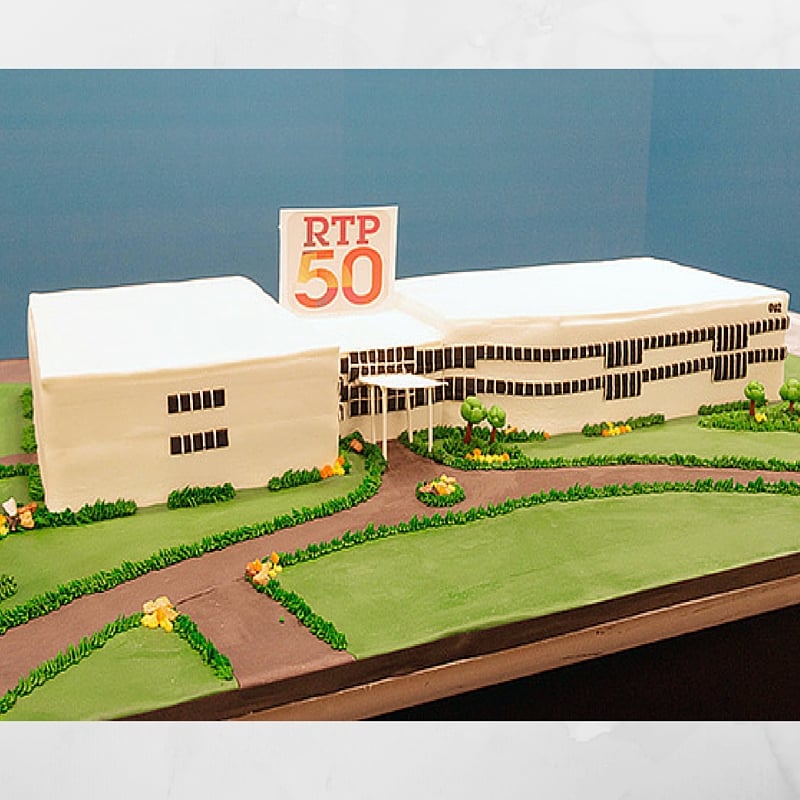
IBM celebrated 50 years in the Research Triangle Park in 2015. Fran O’Sullivan, IBM senior state executive for North Carolina, talks to RTF on what the future looks like in terms of innovation, workforce and work culture.
Q: What types of innovation will IBM in RTP focus on in the next decade or so?
A: We clearly think we have entered the digital era. Everything is being coded – your car, an airplane. Now with all the health monitors, even your body. So there is all this data everywhere. However most of it is dark today… digital intelligence meets the digital era is the cognitive era. How can you get this data with artificial intelligence? At IBM call that Watson. How can we make sense of the data, identify trends, do advanced analytics and actually help drive business outcomes? All units of IBM have a play in this cognitive era on how to deliver this to our clients.
Q: IBM’s nickname was Big Blue. Some say because of the color of the main frames and the dress code? What nickname would you give the IBM of the future?
A: That’s a hard one. We are smart thinkers. We are helping our clients outthink. Our clients call us essential.
Q: Who are you clients?
A: If you look at our past, we sold to chief information officers and enterprises. With this cognitive era our clients are literally entrepreneurial companies such as developers using our Bluemix in the cloud all the way up CEOs who need strategic consulting advice on how to enter the cognitive era. Digitizing the world has made our clients start-ups all the way through Fortune 500 companies.
Q: At one point RTP campus employed the most IBM workers in the U.S. Do you think that will still be the case in the years to come?
A: Nobody is entitled to be the largest forever. The key is to keep being highly innovative and help our clients provide value. We have to execute.
Q: As the head count shrinks at IBM in RTP, how will the work culture change?
A: I think work culture is changing because the world is changing. We very much embrace the agile way. In the past, you would have teams assigned. They would be on one, two, three year roll outs of projects… we are kind of flipping that … We are going to agile. We are tying in the client from the beginning, smaller, co-located work teams, and open spaces for highly collaborative to minimum release products. The work culture is changing, but it has nothing to do with the workforce size but the new way of working.
Q: What types of degrees and education will IBM look for in job candidates of the future? Will you be looking for folks with more business degrees instead of science and technology?
A: Science and technology remains very key. In fact, IBM is now launching cognitive computing curriculum in colleges on the Watson platform. Data sciences are a huge requirement skill we’re looking for in the future. And we will have a mix of business as we do today.
Q: Historically IBM was a leader in terms of hiring women and other minorities, how will the company continue to be progressive in the future?
A: A key focus of ours is to deeply understand our clients. We need to have diversity of thought and approach. That by far makes the most successful teams. As an executive in IBM, I have put plans in place on making sure I have diversity on teams, reaching out and mentoring and coaching. I think that’s the reason for our success.
Q: With workers no longer staying at companies for a lifetime, how will IBM remain competitive in continuing to attract the best and the brightest talent?
A: I think that’s a part of the new work culture, people not wanting to stay with a company. Our HR team, in an agile fashion, has done a major transformation of our entire end-to-end hiring to on-boarding process. In RTP, 25 percent of our workforce has less than five years with the company. I personally find that very inspiring and motivating. People right out of college bring a fresh set of eyes and vitality. We will continue to have to have this focus on attracting this agile workforce as we go forward.
Q: Compare the IBM worker who helped make the Park, to the worker of right now, to the worker of 2020?
A: We started off as a manufacturing location 50 years ago. We had more supply chain expertise. We went through the large service and software professionals. I think as we’re going through the cognitive era, and that goes all the way up to 2020, we are going to have teams of experts. IBMers will work in smaller teams. We will have data scientists and managers closely working with clients who have a deep understanding of their industry. The IBM worker of the future can work on different types of projects and be more of a change agent. They will have more T-shaped skills. They will have their expertise that they are deep on. But in the future, they will have expertise on the clients’ end-to-end business side as well.